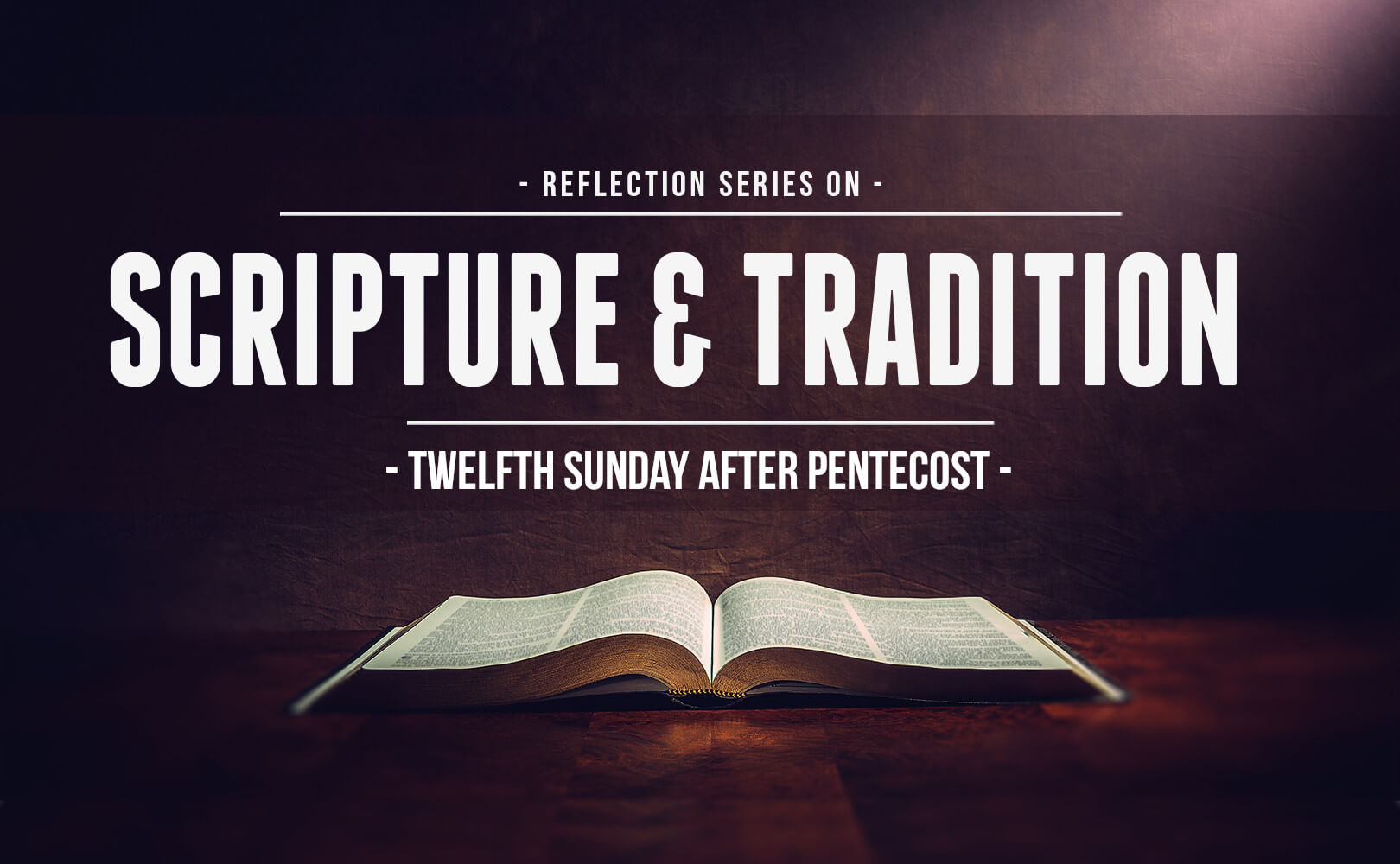Epistle: 2 Corinthians 3:4-9
Gospel: Luke 10:23-37
O almighty and merciful God, of whose gift it comes that Thy faithful people do unto Thee worthy and laudable service: grant unto us, we beseech Thee, that we may run without stumbling towards the attainment of Thy promises.
– From the Collect for the Twelfth Sunday after Pentecost
Charity, the greatest of virtues, is the tie that binds together Sunday’s readings. In discussions of how best to follow God’s law, it must always be remembered that charity perfectly fulfills the law; in a sense, charity is the law.
In Sunday’s Epistle, St. Paul tells the Corinthians “the letter killeth, but the spirit quickeneth.” Paul is not saying that law kills; as St. John Chrysostom preached, “The law served death but was not its cause. What caused death was sin, but the law brought in punishment and showed the sin up for what it was” (Homilies on the Epistles of St. Paul to the Corinthians 7.1). The law simply points out what kills. But the Spirit—the Holy Spirit—brings life. The Apostle is exhorting his fellow Christians that they are no longer dependent upon the old Law to know right from wrong, but rather are to be led by the Spirit. Unfortunately, throughout history many people—including many Christians—have interpreted this passage as an endorsement of lawlessness. According to this view, St. Paul is saying that we don’t need rules and regulations; we can just do whatever we think the Spirit is telling us at the moment, so there is no need for Church laws.
But that interpretation gets the Apostle’s meaning exactly backwards. St. Paul isn’t saying that because we have the Holy Spirit we no longer have to follow laws; he is saying that now we must go beyond the law! We must follow the law of charity, which always looks for the best for others. The person who embraces charity in one sense doesn’t need the law, for he looks not just for ways to follow a minimum set of prescriptions, but wants to go far beyond the law’s demands in order to serve God and neighbor. To focus on the letter is to focus on avoiding punishment, but to be led by the Holy Spirit is to focus on loving God with all one’s heart, soul, mind, and strength, and to loving one’s neighbor as oneself.
The importance of charity is brought out even more explicitly in Sunday’s Gospel. When Our Lord is asked what is necessary for eternal life, he responds by saying, “What is written in the law?” By so asking, Christ shows that the law is the first step in union with God, but, as we’ll see, true Christian discipleship goes beyond the letter.
The lawyer rightly tells Jesus that one must love God with his whole heart, soul, strength, and mind, and also love one’s neighbor as oneself. But the Lord perceives that the lawyer is still clinging to the letter of the law; he wants to reveal the deeper Spirit behind it. So he asks, “Who is my neighbor?” and goes on to tell the famous parable of the Good Samaritan. Every person is our neighbor, and each one has a claim on us, so we must treat them with charity and compassion. Jesus is telling the lawyer (and us) that Christian charity is limitless: it sees beyond all human barriers and looks to one thing only: the good of others.
The person who lives by the letter only wants to do the minimum to achieve eternal life. But in doing so he risks losing that eternal life since his whole focus is on himself. But the person led by the Holy Spirit strives for the maximum: charity in all things, toward God and towards others. He makes charity the new law, which doesn’t remove rules and regulations, but instead makes one desire to fulfill them and even to go far beyond them.


